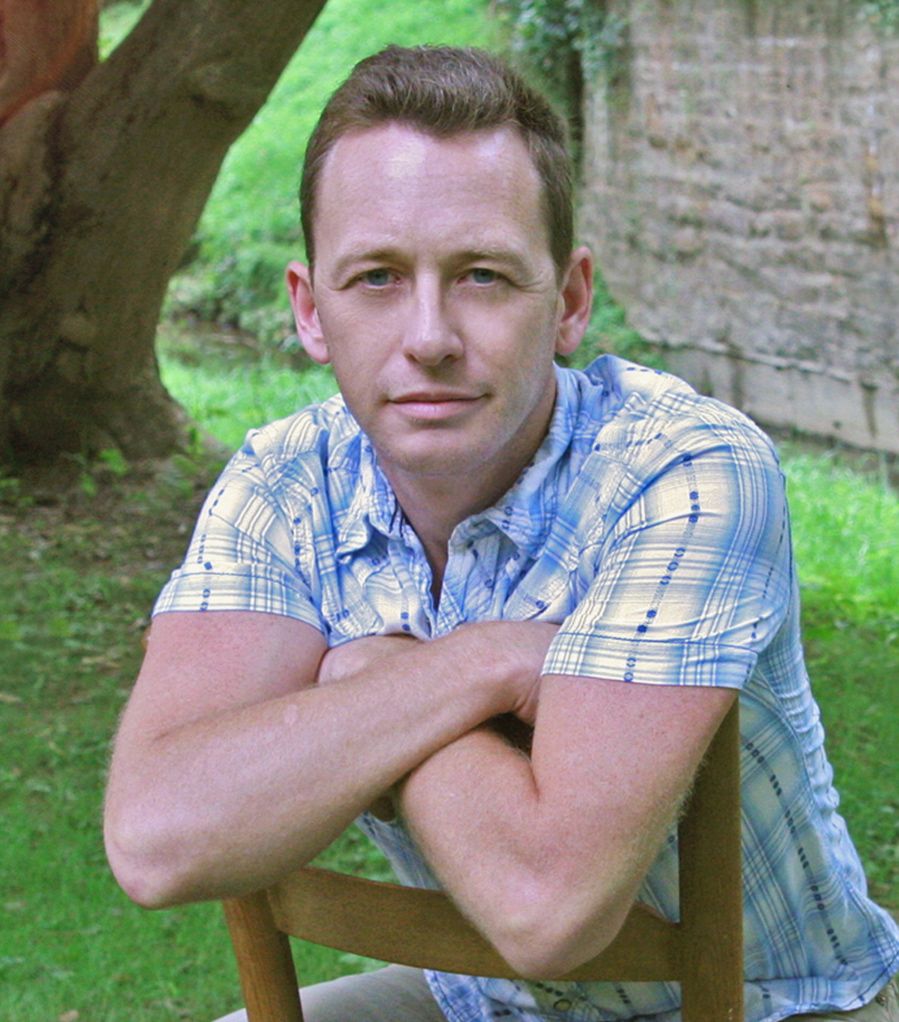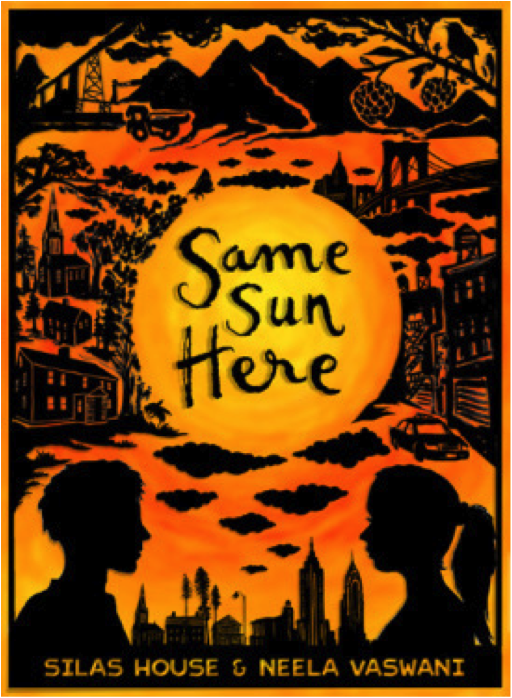Silas House’s Same Sun Here is a book about and for KFTC members
 KFTC member and Kentucky author Silas House published a young adult novel in 2012 called Same Sun Here, a collaboration with New York City author Neela Vaswani. The book is a series of letters between River Dean Justice, who lives in eastern Kentucky, and a girl named Meena, who lives in New York City. House talked with KFTC recently about the book.
KFTC member and Kentucky author Silas House published a young adult novel in 2012 called Same Sun Here, a collaboration with New York City author Neela Vaswani. The book is a series of letters between River Dean Justice, who lives in eastern Kentucky, and a girl named Meena, who lives in New York City. House talked with KFTC recently about the book.
You've said that this book is for KFTC members. Can you elaborate on that?
The main thing I want to get across to KFTC members is that this is a book about them, and for them. I wrote it not only to spread information about mountaintop removal and the many fights for social justice but also to honor all the people who have worked so hard in the anti-MTR movement. The book, to me, has many homages to KFTC itself, and particularly to its members. Although it's frustrating that mountains and rivers are being destroyed, I am still proud of all the good work so many have done. I think we've really raised visibility on the issue and that's always the first step in making a change. I still have hope that this fight can be won and I hope this book can illuminate that to some degree. I think these characters epitomize that defiance and strength that people in this movement have. These two characters will never give up fighting for justice, and that's what I love most about them.
 You co-wrote the book with Neela Vaswani, and you two were writing in two different states. How did that work?
You co-wrote the book with Neela Vaswani, and you two were writing in two different states. How did that work?
Yes, Neela lives in New York City and I live in Kentucky, so we actually wrote letters to one another and sent them in the mail, then collected them and made this book. The letters allowed us to be these characters who are teaching each other about their respective cultures.
Tell us about the characters of River Dean Justice and Meena. What do they have in common, and what do they learn from each other?
I think they both learn that the injustice they've seen in the world isn't so much local as it is universal. They both come to see that people all over the world are victimized if they don't have wealth.
In Meena's case, her part of India has been part of extractive industry and her family witnessed that. Now that she's in NYC she sees the way immigrants are being treated, and there is definitely a class element at play there as well. For River, he becomes increasingly aware of injustice when a mountaintop removal site sprawls out very near his home. The only way that an issues-driven fiction book can work is if the issues grow out of the characters naturally.
I didn't set out to write a book about mountaintop removal, but I was dealing with a young boy growing up in contemporary Appalachia who was very conscious of the world around him, so naturally MTR has an impact on him. I think we tend to underplay the fact that our children are very aware – and very impacted – by issues like MTR. Once I knew this book was going to deal with that, I didn't shy away from really exploring the issue from the point of view of a twelve-year-old boy.
Tell us about the character of the grandmother. How does her activism shape River’s experience and views?
The grandmother – Mamaw Justice – is one of my favorite characters I've ever written and she's a character I get a lot of letters and emails about. Right away I knew this was going to be a book that spoke to the issue of grandparents raising their grandchildren because that is so common in Appalachia today. But suddenly Mamaw sprang to life on the page as this spitfire who would not back down from standing up for what she believed in. In the book she works with KFTC as a volunteer organizer. I definitely based the character on two of the strongest women in the fight against MTR: Kentucky's Teri Blanton and West Virginia's Judy Bonds, who passed away in 2011. They are both amazing examples of strength and defiance, and I was always thinking of the way they'd react to particular situations when I was writing scenes about Mamaw.
Tell us about the reception the book has received, in Kentucky and elsewhere. Awards and honors?
It's received more awards than any other book I've written. We won the EB White Award, which is special to me because Charlotte's Web has always been a favorite book of mine. We won the Nautilus, which is given especially to books that raise social consciousness. We won the Parents' Choice Award, several awards from libraries throughout the country, and even the Audie, which is the highest honor in the country for an audiobook, which Neela and I read. It was also the #1 most recommended young adult book in the country by independent booksellers for a long period.
Although it's been so well-embraced throughout the country I've been surprised that it's been widely ignored within the region. In Kentucky, for example, there has not been one article or review written about it to my knowledge, although my previous books received a lot of media attention. I'm not sure why, but I can't help to think that the politics of the book had something to do with it. I also know that several eastern Kentucky schools have been sent complete classroom sets of the books – because I wanted to make sure that this is a book that got into those schools since Friends of Coal certainly puts their literature and ephemera into the hands of Appalachian schoolchildren – yet not one single eastern Kentucky school has contacted me to visit them about the book. That's frustrating, but I'm hopeful that more people within the region will read the book.
What are your hopes for the book – its message and its reach?
The main thing is that I hope people will read it and learn more about MTR because they're reading about characters who are standing in for hundreds of real people just like them that I've met through my work in the anti-MTR campaign. One of the most powerful images in the book to me is something I witnessed at I Love Mountains Day a few years ago: a child holding a bottle of poisoned and polluted water on the steps of the capitol. I want more people to know about that and I think that fiction is a way to draw people in to learn more. Fiction allows us to learn without knowing that we're learning.
I also hope that more adults will read it. Although it's been marketed as a young adult novel it's simply a book for everyone. When I write YA literature that's what I think about: not that this is for kids, but that it's for everyone, adults and children. So I never dumb anything down or condescend to the reader if it's YA; it's simply different thematically. That's all. The message, to me, is that when we witness something that we feel is wrong we have a responsibility to educate ourselves on it and then act, in whatever way we can. Some of us can march at I Love Mountains Day. Some of us can post information on Facebook to get the word out. Some of us can write letters to the governor. Some of us lobby in Washington. There is nothing too small or large that can be done to aid in the fight against this kind of destruction.
Pick up a copy of Same Sun Here at a local independent bookstore. Find one near you at http://www.indiebound.org/indie-store-finder
Recent News
Kentucky’s past legislative session showed alarming trend toward government secrecy
Churchill Downs takes more than it gives. That's why the Kentucky Derby is a no-go for me
‘We must never forget.’ Kentucky town installs markers for lynching victims.
Featured Posts
Protecting the Earth
TJC Rolling Out The Vote Tour – a KFTC Reflection Essay
KFTC Voter Empowerment Contractor Reflection Essay
Archives
- Home
- |
- Sitemap
- |
- Get Involved
- |
- Privacy Policy
- |
- Press
- |
- About
- |
- Bill Tracker
- |
- Contact
- |
- Links
- |
- RSS

